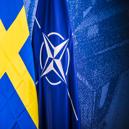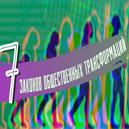 Ранний опыт государственного строительства большевиков и Конституция РСФСР 1918 года
Ранний опыт государственного строительства большевиков и Конституция РСФСР 1918 года
 7
7
 25533
|
Официальные извинения
25533
|
Официальные извинения
 972
972
 106424
|
Становление корпоративизма в современной России. Угрозы и возможности
106424
|
Становление корпоративизма в современной России. Угрозы и возможности
 239
239
 85318
85318
- свежий номер
- о журнале
- архив
- события
-
статьи
- №1/2021|
- Annotations and key words|
- Аннотации и ключевые слова|
- ОБЩЕЕ ДЕЛО, ГОСУДАРСТВО, РЕСПУБЛИКА|
- Неизведанная земля|
- Письмо редакции|
- Искусство вечно|
- для памяти|
- Из книг|
- Мировая арена|
- Положение дел|
- Государство|
- Слово и дело|
- Камо грядеши?|
- За и против|
- Образ жизни|
- Буквально|
- Заметки на полях|
- Рецензии|
- Разное
- авторы
- форум
- №1/2021|
- Annotations and key words|
- Аннотации и ключевые слова|
- ОБЩЕЕ ДЕЛО, ГОСУДАРСТВО, РЕСПУБЛИКА|
- Неизведанная земля|
- Письмо редакции|
- Искусство вечно|
- для памяти|
- Из книг|
- Мировая арена|
- Положение дел|
- Государство|
- Слово и дело|
- Камо грядеши?|
- За и против|
- Образ жизни|
- Буквально|
- Заметки на полях|
- Рецензии|
- Разное










